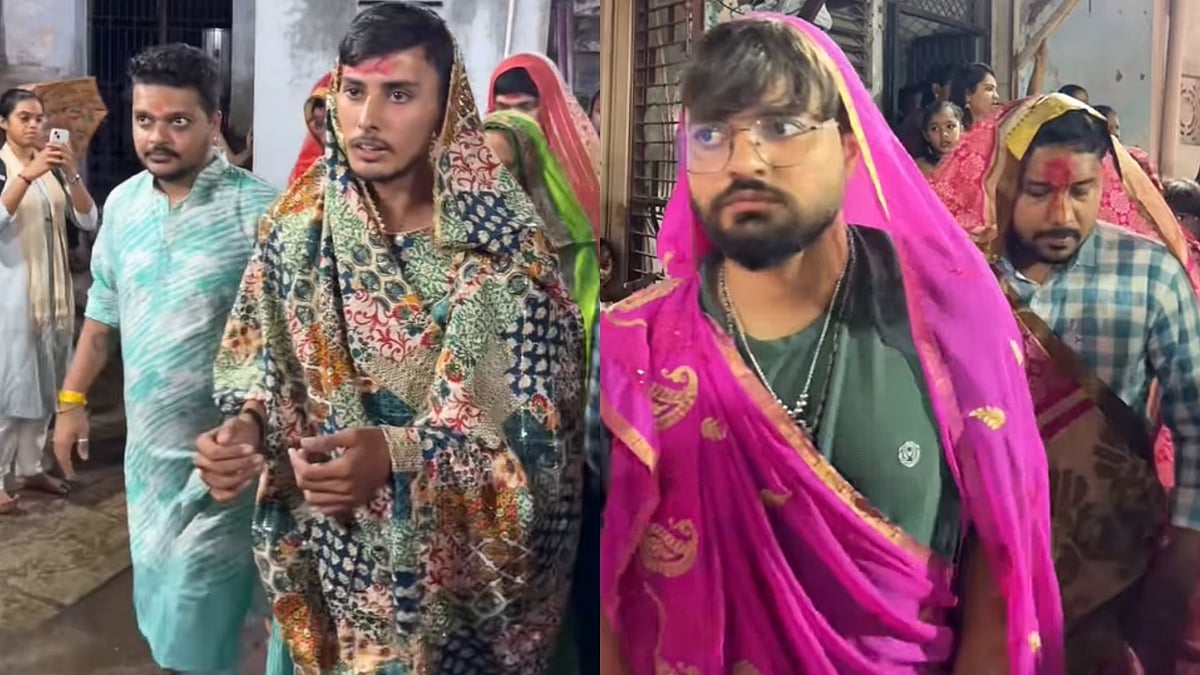At the recently announced Emmy Awards, Hacks won for Outstanding Comedy Series and the lead actress Jean Smart won for her performance in the show for the third time. Over its three seasons, Hacks had earned multiple nominations and won many of them, which is both surprising and pleasing for a show, which, pared down to its essence, is about ageing. The protagonist is Deborah Vance, a 70-ish woman who is a stage and screen comedian fighting the marginalisation of older women in show business.
There is a lot that is wonderful about Hacks, most of all Jean Smart, who works magic with the role, which is also very well written—a woman who is self-aware, knows just what she is up against, but refuses to become a has-been.
She has the younger and very enthusiastic Ava (Hannah Einbinder) as her writing assistant, sounding board and surrogate daughter. In the unapologetic pursuit of success and continuing relevance in a fast-changing, youth-oriented world, Deborah was not a hands-on mother to her own daughter DJ (Kaitlin Olsen), who grew up troubled, resentful and addicted to drugs. Meanwhile, Ava has a problematic relationship with her eccentric mother and sees in Deborah a woman to admire, and even love as the kind of mother figure she never had. It is, of course, simplistic to reduce the unpredictability of their friendship to psychobabble, but they do give off both warm and prickly vibes. Deborah can be supportive and sympathetic towards Ava, and, at the same time, sue her for violating her Non Disclosure Agreement (NDA).
When the show opened in 2021 with its first season Deborah Vance was already a comedy legend with a residency at a Las Vegas casino resort, lasting a miraculous 30 years in the sexist, ageist town; she also has her own line of products on a teleshopping network,and lives like a queen in a palatial mansion, with a small but loyal staff. There was always talent and beauty, of course, but one can only imagine the steely nerves, the grit and the sacrifices that must have been required to survive in cruel show business for that long. She believes that a woman has to be like a shark to attain her level of success. A lingering regret was missing out on her goal to host a late night comedy show on TV when she was younger. In a rage she had set her husband’s house on fire when he left her for her sister. Men are forgiven worse transgressions, but it ended her dream.
Now, years later, the owner of the casino decides to replace her with a younger performer. In the hope that this setback will nudge her towards reinventing herself, her manager sends her another client, a young comedy writer, Ava, who was blacklisted in Los Angeles for making an inappropriate gay joke. At the first meeting, they just trade barbs, but Deborah sees a spark in Ava and hires her. Much later in the third season, Deborah says that she now realises why she took to Ava—the younger woman was as “cruel and selfish” as herself. Ava sees herself as woke and compassionate, but when it comes to her career, she is a fighter too. That NDA violation was her revealing some unsavoury bits of Deborah’s character to a London TV channel, in the hope of getting on the writing team. She spends the better part of Season 2 trying to evade the consequences of this blunder.
When she is ousted from her show—Deborah first shoots paintballs at her replacement's billboard—then decides to go on the road to perform at pubs and village fairs, to sharpen a new confessional kind of set that she has created with Eva’s inputs. She is thick-skinned enough to endure the humiliations of performing at tiny, out-of-the-way venues and that includes a hilarious gig on a cruise ship full of lesbians. In trying not to offend them, she ends up doing just that, and is thrown out.
In her heyday, comedians could crack jokes that are considered insensitive and politically correct now, as she discovers at a college, where she is to be honoured, and is booed instead, when old clips of her racist and sexist jokes resurface. For the first time in her life the “never apologise” Deborah has to say sorry.
The ability to change her colours to benefit her career is what has kept her going when others have faded away in the notoriously fickle field of comedy. Deborah makes no apologies for being ambitious, competitive or selfish — back in college, she had erased the name of a rival from the white board listing winners of a college stand up comedy show. The woman, Susan, gave up what might have been an outstanding comedy career and ended up as a shoe saleswoman in a small town. Decades later, Deborah runs into Susan again, and when she apologises for what she did, and is told that she did not give up because of that, but because she did not want to give up on family for fame and wealth. Unlike the forever “scratching and clawing” Deborah, Susan looks content.
At the end of the second season, when Deborah gets the DVD special she was gunning for, she lets Ava go — telling she is firing her for her own good. In the third season, when there’s a chance for her to fulfill her long-standing dream of hosting a late night comedy show, she shamelessly summons Ava, who drops her lover and her job to stand by Deborah again.
The brilliance of the show lies in its determinedly non-cliched writing (Lucia Aniello, Paul W Downs, Jen Statsky) that just never lets the characters in the show or the audience pin down what Deborah is all about — one moment she mistreats Ava, and in the next, she is jumping into a dumpster to her find a precious keepsake thrown into the trash by mistake; she is furious when Ava needs to go take care of her mother grieving her father’s death, but also quietly turns up at the funeral and helps the mother cope by making the family gathering laugh.
This ability to constantly baffle everybody is what makes Deborah Vance (inspired by showbiz icon Joan Rivers) one of the best female characters written for the screen. She goes to any lengths to get what she wants — and ambitious women are seldom portrayed as likeable — but she is also wise enough to understand what age takes away from a woman. She tells Ava, “You know, your whole life, you say, one day, I’ll do this, one day, I’ll accomplish that. And the magic of one day is that it’s all ahead of you. But for me, one day is now. Anything I want to do, I have to do now, or else I’ll never do it.”
Success engenders a fear of failure, and can also be terribly isolating. Hacks is about loneliness, ageing and the terror of redundancy — worse for women because they cannot let their wrinkles or limp hair show. Jean Smart pours herself into Deborah Vance — always lightly skimming over pathos, then donning her golden wig, glittery pantsuits and striding on stage, like a true diva.
Deepa Gahlot is a Mumbai-based columnist, critic and author










